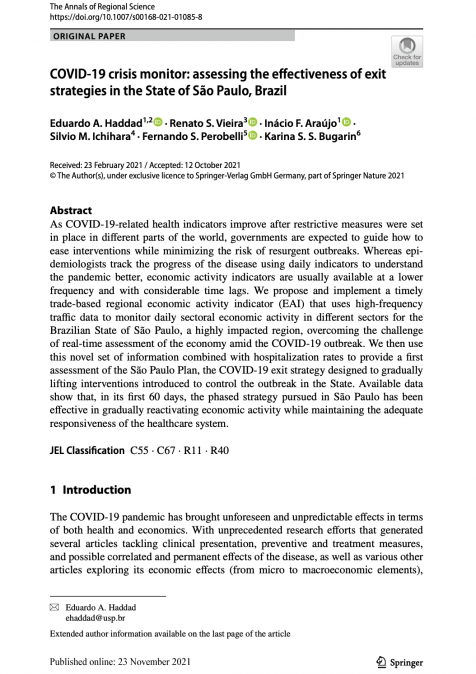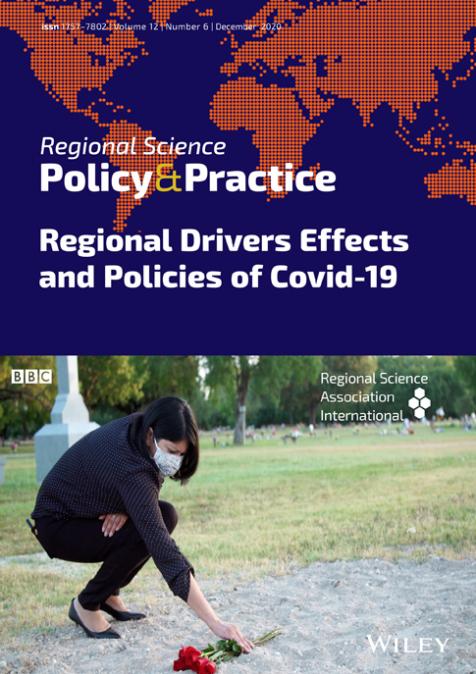Publications /
Opinion
As COVID-19-related health indicators improve after restrictive measures were set in place in different parts of the world, governments are expected to guide how to ease interventions while minimizing the risk of resurgent outbreaks. Whereas epidemiologists track the progress of the disease using daily indicators to understand the pandemic better, economic activity indicators are usually available at a lower frequency and with considerable time lags. We propose and implement a timely trade-based regional economic activity indicator (EAI) that uses high-frequency traffic data to monitor daily sectoral economic activity in different sectors for the Brazilian State of São Paulo, a highly impacted region, overcoming the challenge of real-time assessment of the economy amid the COVID-19 outbreak. We then use this novel set of information combined with hospitalization rates to provide a first assessment of the São Paulo Plan, the COVID-19 exit strategy designed to gradually lifting interventions introduced to control the outbreak in the State. Available data show that, in its first 60 days, the phased strategy pursued in São Paulo has been effective in gradually reactivating economic activity while maintaining the adequate responsiveness of the healthcare system.








